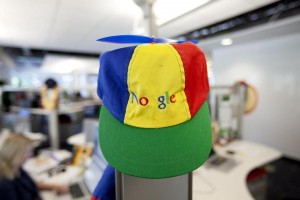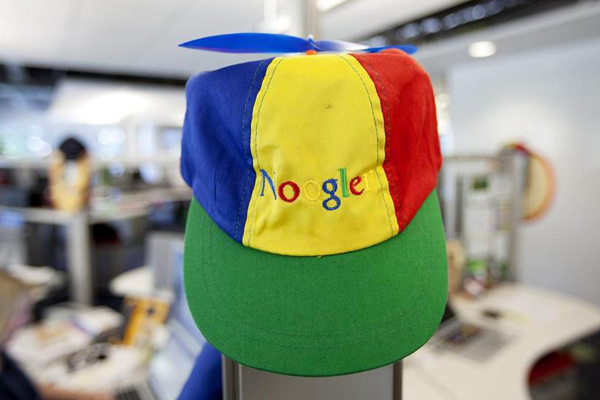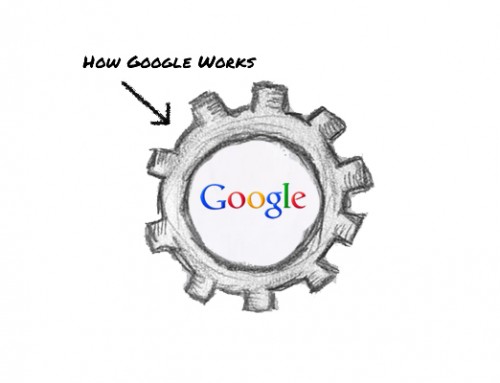This is a random list of 20 MORE things I found fascinating about Google plus links to 40 others and one bonus fact that you may not know. It’s the 4th in a series I’m writing after I recently read the book; Steven Levy’s “In The Plex” – How Google Thinks, Works and Shapes Our Lives. If you would like to read the first 20 Things You Probably Didn’t Know About Google back up 6 words and click or the 2nd list of 20 MORE things you probably didn’t know about Google click the link. The first post was called Don’t be Evil – Google Isn’t and I encourage you to read that before this one to tie it all together.
 As always, lets not waste any time and jump right in to the list:
As always, lets not waste any time and jump right in to the list:
- The engineers are treated like Royalty at Google and work in the same building as the founders, Larry Page and Sergey Brin. The corporate hierarchy is “Engineers and everyone else”.
- Google’s mission is to “Gather and organize all the worlds information”. Think about that a minute…
- New employees at Google are called “Nooglers”. If you are not new you are called a “Googler”. They wear beanies with propellers on top and get a round of applause when they sheepishly stand up to be identified.
- For a few days in 2008 Google employees built and operated a zip line that let them over a ravine while hanging on to a tiny trapeze bar connected by pulleys to a cable bridging the gap as a shortcut for getting from one Google building to a group of others. The city of Mountain View shut it down.
- The first Chef hired by Google, (Charlie Ayers) to prepare food for employees formerly prepared meals for the well known rock band “The Grateful Dead“.
- By 2008 Google had 18 cafe’s in Mountain View spread over several miles of their campus as they continued to grow by snapping up nearby buildings abandoned by other Valley business’s.
- Google spends over $80 million a year providing free food to employees
- Google provides employees a Concierge Service. Just send them an email and they will run any errand you want for $25 an hour.
- When geek milestone movies debuted, such as new installments of the Star Wars series Google often bought out a theater and sprang employees early for the showing.
- Google has tiny computer shops they call “tech stops” every few hundred feet throughout the campus’s that provide any type of computer equipment required should a mouse fail or there is a sudden need for a phone charger.
- Google screens new employment candidates carefully. If one is rude to a receptionist that is a deal breaker.
- Paul Buckheit was the first to propose what is still today Google’s famous slogan “Don’t be evil“. (which has recently been under attack due to some moves Google has made giving their own Social Networks Google+ priority in a search results over other social networks like Facebook and Twitter. )
- During the early stages of Google’s IPO they were hypersensitive about leaks. They sent 20 banks slightly differently worded letters so hey could identify which banks could be trusted to keep their mouths shut.
- Google’s founders “aspire to make Google an institution that makes the world a better place”. But, some investors had difficulty with the heresy that Google was willing to forgo some profits for it’s founders idealistic views of what made the world a better place.
- The day of the IPO Google’s stock finished at $100 per share, a win for sure. But, it would never be that low again. It climbed to $280 a year later, $383 a year after that and in just over 3 years after the IPO topped $700 per share.
- The founders had a number of concerns relating to how the new found wealth of Google employees post IPO may affect the culture. They noticed that increases in stock performance made people happier and more optimistic but that also led them to regard innovative ideas more warily, indicating that as Googlers became richer they became more conservative. That was exactly the downside of the IPO the owners had dreaded.
- In 2001 Google already had over 400 employees and grew to over 20,000.
- Around 2005 Google determined a simple formula to distribute it’s engineering talent: 70-20-10. Seventy percent of it’s engineers would work in either search or ads, 20 percent would focus on key products such as applications and 10 percent on wild cards which would often emerge from the “20 percent” rule where Google employees are allowed to use 20% of their work time to work on anything they want.
- In 1999 Google instituted a management system called OKR (Objectives and Key Results) which was originally devised by Andy Grove at Intel. The idea is to identify not only what one wants to do (Objectives), but to break down the task in to measurable bytes (Key Results).
- 4 times a year everything stops at Google for division-wide meetings to assess OKR progress
Enjoying the article? Subscribe so you’ll get the next one:
Ok, here is one more bonus Google fact that I didn’t want to leave off while we are on the topic of OKR’s because I think this is critical for all you managers out there that are thinking, “hey this OKR thing sounds pretty interesting!”
21. The sweet spot was making about 70% to 80% of your OKR’s. Why is that not considered a failure? Because if you dramatically exceed your OKR’s it would appear you sand bagged it and played it safe in your projections. If you fell slightly short it meant that you thought big, with aggressive goals and Google has no place for audacity challenged people whose grasp exceeded their reach.
I sincerely hope you enjoyed this latest installment of 61 Things You Probably Didn’t know about Google as much as I have enjoyed learning more about this amazing company. There will easily be 3 or 4 more posts like this one.
Do you know something interesting about Google you would like to share? Please leave it in the comments below and please share this post with anyone you think may find it interesting. Also, be sure to subscribe to our blog over there on the right and get our future posts. Thanks for reading!




FOLLOW US